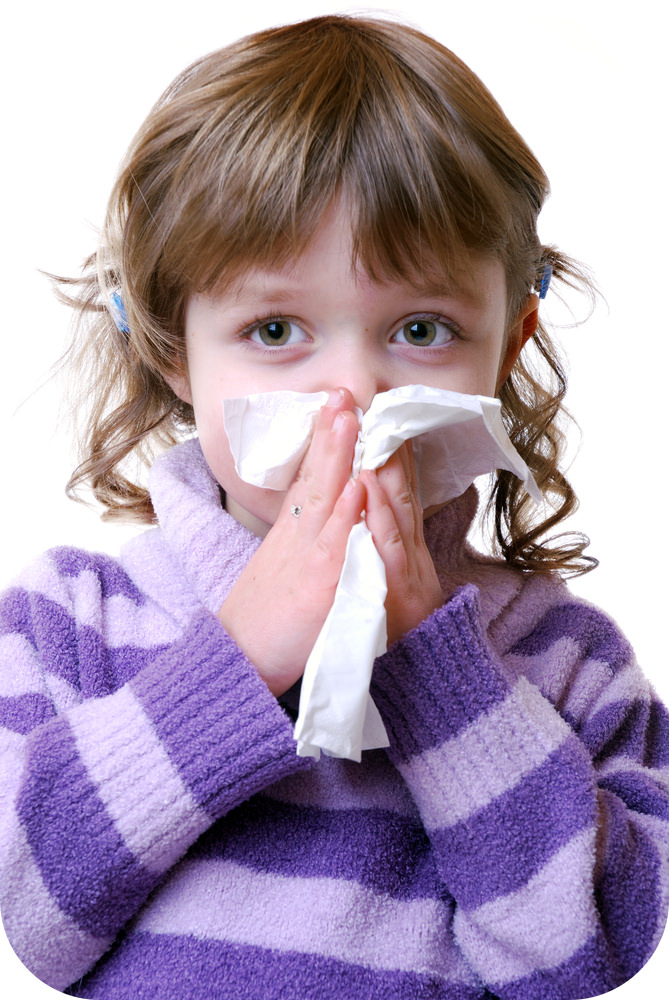3.16 Genetic Disorders
3.16 Genetic Disorders
When is a cold not just a cold?
At some point in your life, you're bound to catch a cold. And there are ways to prevent catching a cold. But what if you couldn't prevent an illness? What if you were born with a disease? What if having a disease was actually due to your DNA? These are genetic diseases, and they can be very serious.
Human Genetic Disorders
Many genetic disorders are caused by mutations in one or a few genes. Others are caused by chromosomal mutations. Some human genetic disorders are X-linked or Y-linked, which means the faulty gene is carried on these sex chromosomes. Other genetic disorders are carried on one of the other 22 pairs of chromosomes; these chromosomes are known as autosomes or autosomal (non-sex) chromosomes. Some genetic disorders are due to new mutations, others can be inherited from your parents.
Autosomal Recessive Disorders
Some genetic disorders are caused by recessive alleles of a single gene on an autosome. An example of autosomal recessive genetic disorders are Tay-Sachs disease and cystic fibrosis. Children with cystic fibrosis have excessively thick mucus in their lungs, which makes it difficult for them to breathe. The inheritance of this recessive allele is the same as any other recessive allele, so a Punnett square can be used to predict the probability that two carriers of the disease will have a child with cystic fibrosis. Recall that carriers have the recessive allele for a trait but do not express the trait. What are the possible genotypes of the offspring in the following table (Table below)? What are the possible phenotypes?
| F | f | |
|---|---|---|
| F |
FF (normal) |
Ff (carrier) |
| f |
Ff (carrier) |
ff (affected) |
According to this Punnett square, two parents that are carriers (Ff) of the cystic fibrosis gene have a 25% chance of having a child with cystic fibrosis (ff). The affected child must inherit two recessive alleles. The carrier parents are not affected.
Tay-Sachs disease is a severe genetic disorder in which affected children do not live to adulthood, so the gene is not passed from an affected individual. Carriers of the Tay-Sachs gene are not affected. How does a child become affected with Tay-Sachs?
Autosomal Dominant Disorders
Huntington’s disease is an example of an autosomal dominant disorder. This means that if the dominant allele is present, then the person will express the disease. A child only has to inherit one dominant allele to have the disease.
The disease causes the brain’s cells to break down, leading to muscle spasms and personality changes. Unlike most other genetic disorders, the symptoms usually do not become apparent until middle age. You can use a simple Punnett square to predict the inheritance of a dominant autosomal disorder, like Huntington’s disease. If one parent has Huntington’s disease, what is the chance of passing it on to the children? If you draw the Punnett square, you will find that there is a 50 percent chance of the disorder being passed on to the children.
Summary
- Autosomal recessive genetic disorders, such as cystic fibrosis, are caused by recessive alleles of a single gene on an autosome.
- Autosomal dominant genetic disorders, such as Huntington's disease, are caused by dominant alleles of a single gene on an autosome.
Review
- Can you be a carrier of an autosomal recessive genetic disorder?
- Can you be a carrier of an autosomal dominant genetic disorder?
- One parent is a carrier of the cystic fibrosis gene, while the other parent does not carry the allele. Can their child have cystic fibrosis?
Explore More
Use the resources below to answer the questions that follow.
I. What are Genetic Disorders? at http://learn.genetics.utah.edu/content/disorders/
- What are multifactorial disorders? What is an example of a multifactorial disorder?
- What are single-gene disorders? What is an example of a single-gene disorder?
- What causes galactosemia? How is it diagnosed? How is it treated?
- What causes Colon Cancer? What is a tumor suppressor gene?
- What is newborn genetic screening? How is it carried out?
II. Down Syndrome at http://www.ygyh.org/ds/whatisit.htm
- Are all cases of Down Syndrome the result of inheritance?
- Do all cases of Down Syndrome have a complete extra chromosome?
- Explain your answer fully. How can a fetus be screened for Down syndrome?
- Log in or register to post comments
- Email this page

